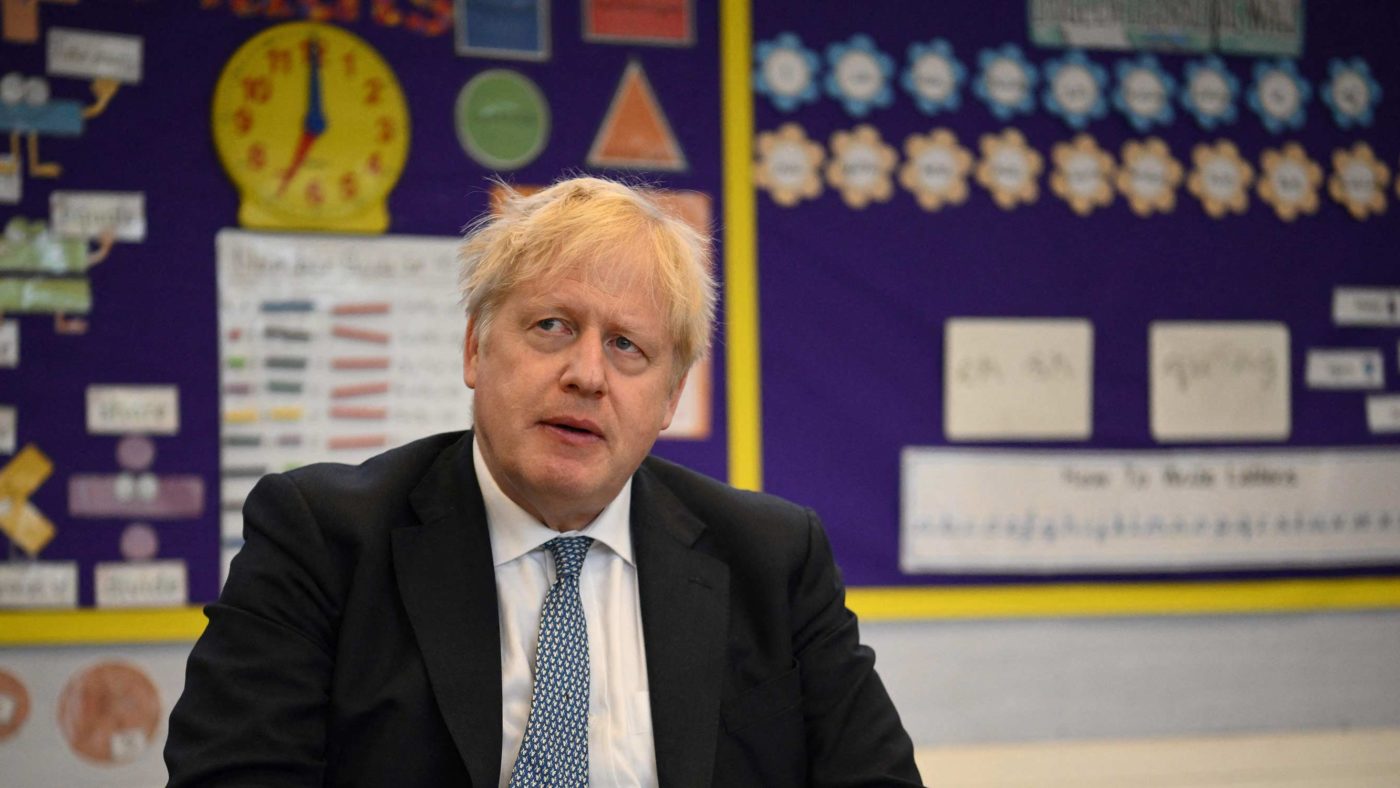As things stand, it doesn’t look as if the local election results are going to give Conservative MPs the sort of very powerful kick they apparently need to go over the top and try and replace Boris Johnson.
That isn’t to say they’re good results, by any means. The national leadership has clearly been a drag on the campaign in Scotland, where Labour look set to retake second place; the loss of flagship London councils could presage a further weakening of the Tories’ already precarious position in the capital.
But with Labour talking about picking up 16 constituencies based on the current vote share, and the Government having a majority of 80, most MPs inclined to inaction can probably comfort themselves that their own seat is likely safe.
However, the Prime Minister’s allies are clearly not sanguine about the danger, if the extraordinary rumours that allegedly filtered out of his inner circle this week are anything to go by.
First, there was the suggestion that Johnson might exploit the freedom won by his (highly worthwhile) repeal of the Fixed-term Parliaments Act and go to the country early – perhaps as soon as this year.
Downing Street has denied it in the strongest terms. But then, the Prime Minister did the same thing about the Northern Irish Protocol, and we ended up with that. The blood-chilling prospect of a blank podium appearing outside Number 10 can’t be entirely ruled out.
Suffice to say, it is extremely difficult to see how the Government would be able to sell this decision to voters facing their fourth general election in seven years. At least in 2017 and 2019 there were the exigencies of Brexit and the practical realities of a small or non-existent majority in the Commons.
But at the last election the nation handed Johnson a handsome overall majority and now have a perfectly reasonable expectation that he gets on with the job. There is mounting frustration that he is failing to do so – see Christian Wakeford, who defected to Labour, complaining that he had nothing to put on his leaflets.
Then there’s the unavoidable fact that any election would almost certainly result in a smaller majority than the Government currently enjoys, assuming the Conservatives actually won a majority. What could Johnson do with a small majority that he couldn’t do with a big one? There’s no good answer to this question.
There is, however, a very bad answer to this question: Suella Braverman’s alleged call for the Prime Minister to withdraw the whip from disloyal MPs.
In normal circumstances, such action would prevent those MPs from filing letters to Sir Graham Brady to trigger a vote of no confidence. But combine it with an early election, and it means effective deselection. MPs without the whip would be ineligible to stand as Conservative candidates.
This is, of course, precisely what Johnson did in the run-up to the 2019 election, when he withdrew the whip from die-hard opponents of his plans for Brexit and then refused to admit some of them back into the fold. Despite a few spirited independent candidacies (take a bow, David Gauke), none of the exiles is still in the Commons.
But there is again the question of exigency. The 2019 election was, in an almost 19th-century way, a single-issue general election. Contra the qualms of critics such as Lord Sumption, it was perfectly reasonable for the Prime Minister to insist that candidates standing as Conservatives in that contest were on board with the flagship policy on which he was fighting it.
Pulling the same stunt here is completely different, because the only issue at stake is loyalty to Johnson personally. This is especially the case because he has no coherent programme to which MPs might otherwise commit themselves, which is why he doesn’t have the capacity to cooperate with ‘big beasts’ the way Margaret Thatcher did.
But the Conservative Party is not his personal fief; if he is able simply to expel any MP who wishes a change of leadership, it makes a nonsense of having procedures for a no-confidence vote in the first place.
Whatever their personal views of Johnson, Tory MPs should take a very firm line against even a sniff of this sort of entitled, imperial thinking emanating from the PM and his dwindling band of loyalists.
Click here to subscribe to our daily briefing – the best pieces from CapX and across the web.
CapX depends on the generosity of its readers. If you value what we do, please consider making a donation.


